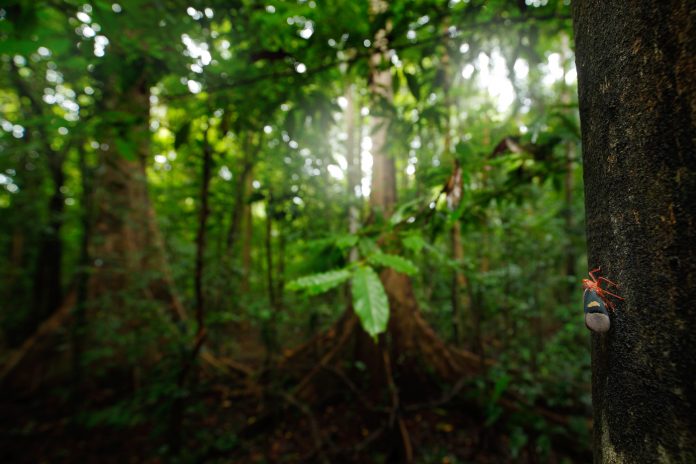Scientists at the University of Exeter found that tropical peatland conservation can impact how animal diseases, like the bat-based COVID-19, transfers to human beings
Emerging infectious diseases (EIDs) are the ones that jump to humans – for instance, the infamous virus that originated with bats in Wuhan, China, which has gripped the world. COVID-19 jumped from an infected, dead bat to a human being, and spread from that point outwards.
However, alarmingly, it is not the only infectious disease that has the power to make that move. What else is waiting for humanity out there, and how can it be stopped from making the crucial jump?
Tropical peatlands as a potential source
COVID-19 did not emerge in a tropical peatland area – but HIV/AIDS and the joint-first case of Ebola both originated in areas with extensive peatlands.
Tropical peatlands that are currently experiencing habitat destruction and wildlife harvesting have been investigated by researchers as a particularly potent source of EIDs, if the decimation of their biodiverse environments continues.
The study also assessed the possible impact of COVID-19 on tropical peatland conservation and local communities, finding that the ongoing pandemic posed “numerous potential threats” to both. Led by the University of Exeter, the international study team comprised researchers from countries with large tropical peatlands, including Indonesia, DR Congo and Perú.
‘Increasing the threat to human life’
Dr Muhammad Ali Imron, from University Gadjah Mada in Indonesia, who was involved in the study, commented: “Additionally, major wildfires in peatland areas cause massive air pollution, particularly in South East Asia, increasing the threat to human health from respiratory diseases like COVID-19.
“In terms of the impacts on peatlands themselves, we reveal that conservation, research and training are all being affected by the pandemic, which may result in increased habitat encroachment, wildlife harvesting and fires started to clear vegetation”.
‘Zoonotic diseases could emerge’
Lead author Dr Mark Harrison, of the Centre for Ecology and Conservation on Exeter’s Penryn Campus in Cornwall, UK and Borneo Nature Foundation International: “We’re not saying tropical peatlands are unique in this respect – but they are one important habitat where zoonotic diseases (those that jump from animals to humans) could emerge.
“Tropical peat-swamp forests are rich in fauna and flora, including numerous vertebrates known to represent zoonotic EID risk, such as bats, rodents, pangolins and primates.
“Exploitation and fragmentation of these habitats, as well as peat wildfires (ultimately driven by human activity) and wildlife harvesting bring more and more people into close contact with peatland biodiversity, increasing the potential for zoonotic disease transmission.
“Our review shows that protecting tropical peatlands isn’t therefore just about wildlife and carbon emissions – it’s also important for human health.”
The next step in protecting humans from animal disease
The research shows what happens when humanity uses tropical peatlands without sustainable land management. Essentially, we need to keep looking after these areas so that EIDs don’t re-emerge, and so that the impact of the COVID-19 pandemic doesn’t overwhelm the local communities who dwell there. The study proposes that the argument now is for “their conservation and restoration”.











